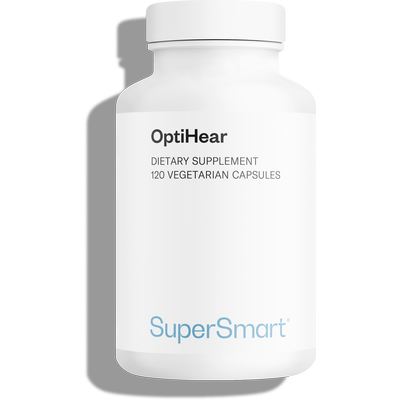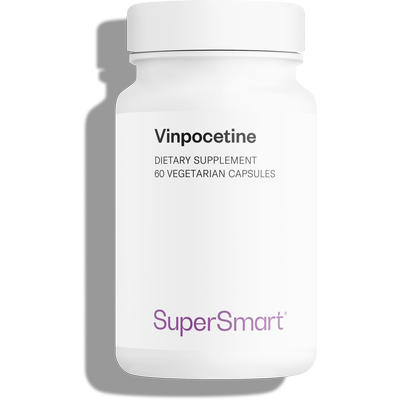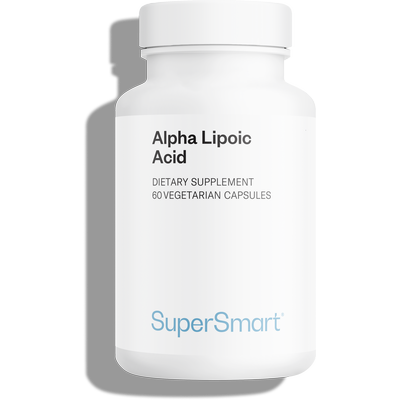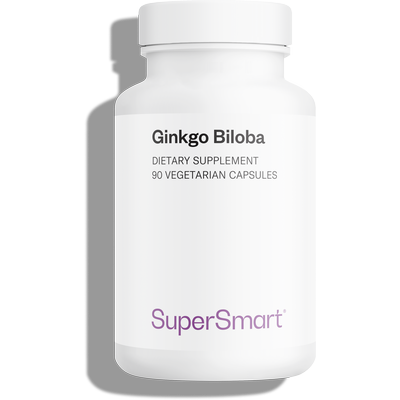26-05-2015
Hearing impairment: nutritional and botanical supplements can help
 Almost a third of adults aged between 65 and 74 are affected by impaired hearing, with incidence rising to 50% among the 75-79 age group. Nutritional and botanical supplements - particularly alpha-lipoic acid, vinpocetine, ginkgo biloba, quercetin and magnesium – can help prevent, and even stem, some forms of hearing impairment.
Almost a third of adults aged between 65 and 74 are affected by impaired hearing, with incidence rising to 50% among the 75-79 age group. Nutritional and botanical supplements - particularly alpha-lipoic acid, vinpocetine, ginkgo biloba, quercetin and magnesium – can help prevent, and even stem, some forms of hearing impairment.
Five million people in England suffer from poor hearing. An enquiry conducted by INSERM (l'Institut National de la Santé et de la recherche Médicale) suggests that among the over-60s, one in three have normal hearing, 40% have mild impairment and 30% have mild to moderate impairment.
Hearing loss may result from dysfunction in one part of the auditory system. Causes include disease, heredity, noise exposure, ototoxicity (when the inner ear comes into contact with toxins) including from certain antibiotics, and damage to the cochlear nerve and brain.
The most common type of hearing loss among older people is presbycusis, the term for age-related hearing loss of unspecified cause. Though presbycusis starts to develop at around the age of 30, it is largely after 50 that it can become socially problematic. Presbycusis typically involves high-frequency hearing loss and sufferers find it increasingly difficult to discriminate and understand speech.
Hearing loss is partial since it does not affect all frequencies and those neurons initially coded for a particular frequency sound, but which are no longer ‘called upon’ due to hearing loss, are able to respond to other audible frequencies. As data from animal studies shows, the brain’s auditory cortex thus undergoes a functional reorganisation of the frequency ‘map’.
Tinnitus, buzzing and ringing in the ears, with no external trigger, occur quite frequently in older people, and can accompany hearing loss. These complaints affect 10% of the population and for 0.5% of them, they represent a significant problem.
Though it is not known what causes them, they can be symptomatic of ear disorders such as infections, blockages in the ear canal or Eustachian tube, otosclerosis (bone overgrowth in the middle ear) or Ménière’s disease which is characterised by dizziness and tinnitus.
Alpha-lipoic acid protects against hearing loss caused by antibiotics and exposure to noise
At the Duke University Hearing Research Laboratories in Durham, North Carolina, scientists investigated the potential benefits of alpha-lipoic acid on cochlea tissue damage caused by antibiotics such as aminoglycosides. A number of studies have recently shown that gentamicin (an aminoglycoside antibiotic widely used for infections of the cornea and urinary tract, amongst others) stimulates free radical generation, strongly suggesting this process may play an important role in aminoglycoside-induced ototoxicity.Given the ability of certain nutrients to quench free radicals, the scientists tested alpha-lipoic acid’s potential for reducing antibiotic-induced ear damage in animals. They found that when alpha-lipoic acid was given alongside antibiotics, the animals’ hearing suffered less damage than with antibiotics alone.
According to the researchers, alpha-lipoic acid is particularly suitable for protecting the ears because it is widely distributed in both aqueous and lipid tissues. In addition, it readily crosses the blood-brain barrier and is well-absorbed by neural tissues.
In a recent study, alpha-lipoic acid combined with vitamin E was found to protect against exposure to high-energy impulse noise caused by explosions, which can produce functional and structural damage in hollow organs, particularly the respiratory and auditory systems. Scientists examined whether a short period of antioxidant supplementation, with either 800IU of vitamin E, 1000g of vitamin C or 25mg of alpha-lipoic acid, could protect rats against damage from an explosive blast.
Each nutrient was given for three days. On the fourth day, the rats were deeply anaesthetised and exposed to a simulated blast wave. Researchers found that the vitamin E and alpha-lipoic acid supplements, but not the vitamin C, were able to reverse hearing loss. The amount of alpha-lipoic acid given was relatively low compared to the amount of vitamin E used. Typical human doses of vitamin E are in the region of 800IU/day and 400mg/day for alpha-lipoic acid. The researchers concluded that relatively low doses of alpha-lipoic acid protect against hearing damage.
Considerable research has been conducted into glutathione’s potential as a natural protector of the cochlea against free radical damage. Studies have shown that alpha-lipoic acid increases levels of intracellular glutathione by as much as 70%. Alpha-lipoic acid’s ability to regenerate and increase levels of vitamins C and E in the body are also among its hearing-related benefits. These vitamins play an important role in neutralising free radicals.
Research published some years ago had demonstrated that a therapy based on certain vitamins could restore short-term hearing loss, particularly that linked to Ménière’s disease, the cause of which is unknown but which is characterised by repeated vertigo, tinnitus and progressive hearing loss. The hearing-loss therapy involved the use of vitamins B12, B1, B5, a steroid, a diuretic and alpha-lipoic acid.
This vitamin-based treatment was compared with what was described as ‘conventional’ therapy which included a steroid, vitamin B, dextran and a local anaesthetic. A total of 454 ears were treated for sudden deafness, and 354 cases for perceptive hearing loss from other causes. Both treatments proved equally effective but for new cases of hearing loss, treated within four weeks of onset, the vitamin-based treatment was more effective, as was also the case for those suffering from Ménière’s disease. To reiterate, this vitamin-based treatment also contained alpha lipoic acid at a dose of 200mg.
Vinpocetine delays hearing loss and restores some auditory functions
Vinpocetine at doses of 15-35mg was given to 18 subjects with widely-differing degrees of perceptive hearing deficiencies. In eight participants, there was a significant improvement in auditory function (from 10 to 30 dB for four of the subjects and over 40 dB for the other four). In practice, this meant measurable improvements in understanding speech, particularly when there was a lot of background noise. The highest doses produced better results. Researchers noted that significant improvements in auditory function were achievable particularly with young or middle-aged patients.A number of studies have demonstrated that vinpocetine helps improve impaired auditory function associated with various sensorineural alterations and with dizziness. It has been shown to help with age-related hearing loss, vascular alterations to hearing and high frequency hearing loss caused by environmental factors. Vinpocetine has also proven to be superior to other vasodilators in Ménière’s disease (dizziness accompanied by tinnitus).
Perceptive deafness is generally hereditary but may be due to other causes. Vinpocetine has been shown to be effective for some forms of deafness and for otological problems accompanied by dizziness and tinnitus. It is also beneficial in cases of vascular deafness, age-related hearing loss and sudden deafness accompanied by physiological dysfunction.
Studies have also shown that vinpocetine can help prevent damage linked to ototoxicity, particularly antibiotics, aspirin or diuretics.
It stimulates intracellular levels of cyclic guanosine monophosphate (an intracellular messenger essential for nitric oxide production) and increases relaxation of smooth vascular muscle. It reduces the resistance of ear capillary cells and cochlear cells, and protects and promotes increased blood flow.
A study on guinea pig cell cultures conducted at Semmelweis University’s Faculty of Medicine in Budapest showed that bioflavonoids such as ipriflavone and quercetin had a beneficial effect on otosclerosis. They reduced sclerotic damage processes by acting synergistically to stimulate collagen synthesis. When collagen degenerates it becomes a prime site for damage formation. As quercetin is more water-soluble than ipriflavone, scientists believe it is likely to be more effective at controlling otosclerosis-induced bone remodelling.
Magnesium for noise-related hearing damage
Magnesium has been shown to help protect hearing from noise trauma. 300 young, healthy military recruits who underwent two months of basic training were repeatedly exposed to high levels of impulse noises. At the start of each day, the recruits were given a 167mg dose of magnesium (in the form of magnesium aspartate) or a placebo.The study produced astonishing results: incidence of permanent hearing loss was significantly higher in those recruits given a placebo as opposed to magnesium. The placebo group suffered more frequent and more severe damage than the magnesium group. Other studies have produced similar results.
Ginkgo biloba and tinnitus
In 1986, a study demonstrated ginkgo biloba’s efficacy in treating tinnitus. Buzzing in the ears disappeared completely in 35% of patients tested, with improvements discernible from the 70th day of the study.350 patients with age-related hearing impairment were then treated with ginkgo biloba with a success rate of 82%. In addition, a follow-up study of 137 patients from the original group revealed that five years later, 67% continued to enjoy improved hearing.
A recent German paper evaluated 19 clinical studies on the effects of ginkgo biloba extract on tinnitus. Results from eight of these controlled studies on tinnitus due to cerebral vascular insufficiency or other disorders largely showed ginkgo biloba to be more effective than placebo or other medication over periods of one to three months. Open studies, some large-scale, demonstrated considerable improvement from ginkgo biloba treatment. While therapeutic success did not directly correlate with the onset or duration of the tinnitus, examination of prognostic factors suggests that early treatment achieves better results.
References :
Attenuation of aminoglycoside-induced cochlear damage with the metabolic antioxidant alpha-lipoic acid, Hear Res., 1999;128 (1-2):40-44.
Interplay between lipoic acid and glutathione in the protection against microsomal lipid peroxidation, Biochel Biophys Acta, 963;558-561.
The efficacy of lasix vitamin therapy for sudden deafness and other neurosensorineural hearing loss, Acta Otolaryngol. 1991;486:78-91.
Vitamin E and lipoic acid, but not vitamin C improve blood oxygenation after high-energy impulse noise (BLAST) exposure, Biochem Biophys Res Commun, 1998;253(1):114-118.
Therapeutic action of cavinton in hearing defects of neurologic origine, Ther Hung, 1978;26:16-19.
Ethyl apovincaminate in the treatment of sensorineural impairment of hearing, Arzneimittelforschung, 1976;26:1977-1980.
Action of cavington on hearing defects of different origin. Ther Hung, 1978;26:16-19
Effect of ethyl ether of apovincaminic acid (Cavinton) on the ototoxic action of sisomicin in guinea pigs. Otolaryngol Pol, 1990;44:122-129.
Flavonoids alter bone-remodeling in the auditory ossicle organ cultures. Acta Otolaryngol, 1995;115:296-299.
Oral magnesium intake reduces permanent hearing loss induced by noise exposure. Am J Otolaryngol, 1994;15:26-32.
Pills may replace ear-muffs for protection against damaging noise. Lancet, 1998;351:1411.
Trial of an extract of Ginkgo biloba for tinnitus and hearing loss. Clin Otolaryngol, 1988;13:501-502.
Ginkgo special extract Egb 761 in tinnitus therapy. An overview of results of completed clinical trials. Fortschr Med 2001; 118 (4):157-164.
Order the nutrients mentioned in this article
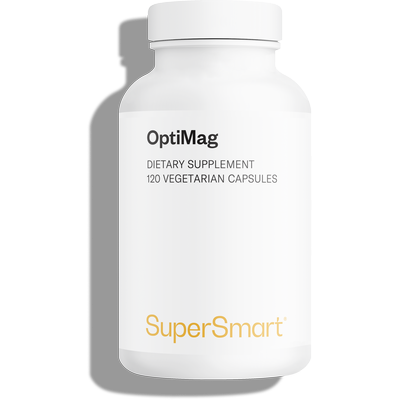
Unique and synergistic combination of 8 exceptional forms of magnesium (excellent bioavailability and solubility)
www.supersmart.comFurther reading
10-10-2016
In India, turmeric is used to treat a wide variety of ailments including gastrointestinal problems, inflammation, headaches, infections and colds. It is turmeric’s curcuminoid content,...
Read more08-05-2019
Though it is well-established that red and orange fruits and vegetables such as carrots, sweet potatoes and tomatoes reduce the risk of age-related macular degeneration...
Read more26-04-2017
Have you heard about sea buckthorn berries? Since the beginning of the 2000s, interest in these small orange berries has been growing steadily, accompanied by...
Read more© 1997-2025 Fondation pour le Libre Choix
All rights reserved
All rights reserved
Free
Thank you for visiting our site. Before you go
REGISTER WITHClub SuperSmart
And take advantage
of exclusive benefits:
of exclusive benefits:
- Free: our weekly science-based newsletter "Nutranews"
- Special offers for club members only



